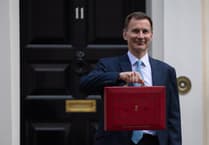Hampshire County Council's leader has condemned the Autumn Budget as “deeply disappointing” for the authority, local growth, and businesses.
On Wednesday, Labour chancellor Rachel Reeves presented her debut budget, which aims to raise £40 billion in taxes, increase borrowing, and boost spending. Reeves justified the tax hikes as necessary to plug a ‘black hole’ in public finances and to fund the NHS and other services.
Cllr Nick Adams-King, the Conservative leader of Hampshire County Council, however, expressed his discontent.
“This budget is deeply disappointing for Hampshire County Council, local growth, and our businesses,” he said.
He criticised the additional £1.3 billion for local government as “a few grains of sand” when spread across the country, and raised concerns that much of the funding would be directed toward the Midlands and the North.
Cllr Adams-King highlighted that instead of supporting local governments, Hampshire County Council would now face increased costs.
“The substantial rise in employer National Insurance contributions will cost the council millions. While the Government claims this is funded, it comes from the additional local government funding, effectively adding to our burden,” he said.
“Furthermore, the national living wage increase, significantly above inflation, will likely escalate our costs. We simply cannot afford this.”
He referenced a previous statement from the Local Government Association, which warned of a £2.3 billion gap for local authorities in 2025-26 just to maintain current services. He said: “What the chancellor has provided is a totally inadequate sum—regardless of whether we receive our fair share.
“Immediately following this, we face increased operating costs. Our budget deficit will persist unless we are empowered to determine how to allocate and raise our funds. We should not be constrained by government mandates or increased budget restrictions while funds are redirected to other areas.”
The council leader noted that nothing in the budget would lead to improvements, despite his prior correspondence with the chancellor regarding how councils could thrive with greater powers for innovation and reform.
He acknowledged the additional funding for schools and children’s social care as the “only” positive aspect of the budget but cautioned that it remains a “relatively small” figure that cannot be relied upon if the Government prioritises funding for other areas.
Regarding the extra funding for special educational needs and disabilities (SEND), which is a significant concern for Hampshire, he said: “This is a drop in the ocean compared to the pressure we face. Even if shared equally, it would only reduce a projected £90 million deficit next year to £70-75 million—hardly a ‘rescue package’! I just don’t see how this Government is investing for growth in Hampshire.”
He also expressed concerns for Hampshire farmers, who have been “treated terribly” by the budget, particularly with changes to inheritance tax, which the National Farmers’ Union has labelled a blow to farmers that could lead to food price increases.
“As a former small business owner, I am horrified for local entrepreneurs. They are the backbone of our economy and must be devastated by these changes,” he added.
“The national insurance tax increase on working people and businesses will be disastrous, not just here in Hampshire, but across the country.”





